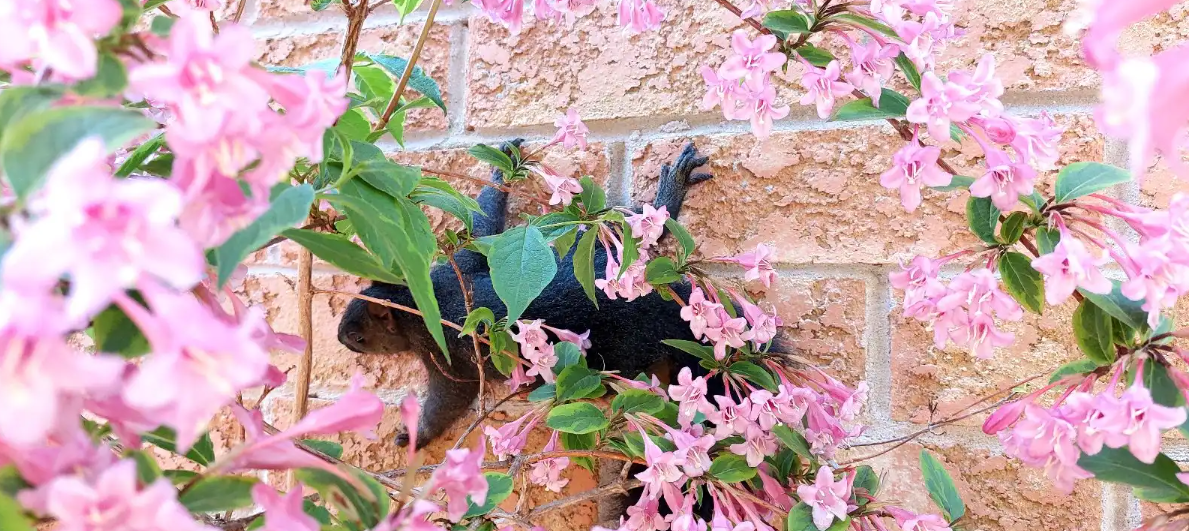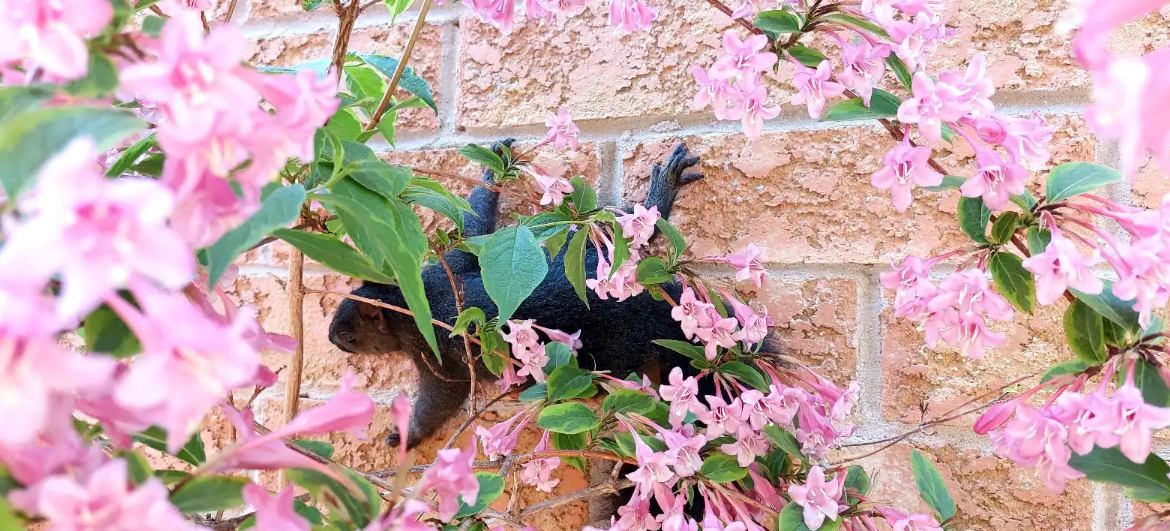As dawn breaks and the world awakens, squirrels burst into activity, darting through trees and scurrying across lawns. This impressive morning hustle can leave many wondering: why are squirrels so active in the morning? This is largely because they are crepuscular creatures, meaning they thrive during twilight hours. Early mornings provide an optimal foraging time, allowing them to gather food before the heat of the day sets in. Unlike nocturnal animals, squirrels actively seek out nuts, seeds, and fruits when they are cooler and safer from potential predators, resulting in intriguing sounds and energy-filled movements.
Understanding this behavior is crucial for homeowners in John’s Creek who may encounter the lively antics of our furry friends. When squirrel noises begin to stir in the early hours, it can indicate a nearby nest or food source, prompting the need for effective wildlife removal.
At Skedaddle Humane Wildlife Control, we specialize in addressing squirrel-related issues in the area, employing humane techniques that ensure the safety of both the animals and the residents. Our expertise will guide you through the complexities of dealing with these lively creatures, helping you maintain a harmonious coexistence with nature while keeping your home secure.
Why Are Squirrels So Active in the Morning?
Squirrels are among the most energetic and visible wildlife during the early morning hours, and their heightened activity at this time is driven by several biological and environmental factors.
Primarily, squirrels are diurnal animals, meaning they are active during the day and rest at night. The morning hours provide an optimal window for foraging and other essential activities. During this time, temperatures are generally cooler, reducing the risk of overheating during strenuous activities such as climbing, running, and jumping. Cooler temperatures also make it easier for squirrels to maintain their high metabolic rates without expending excessive energy to stay cool.
Additionally, the early morning offers a relatively quiet environment with fewer predators. Many of their natural predators, such as owls and coyotes, are less active during daylight hours, which allows squirrels to forage with reduced risk. This period also sees less human activity, further minimizing disturbances and creating a safer and more peaceful foraging environment.
Morning is also a crucial time for squirrels to gather food, especially as they prepare for winter. They spend these hours collecting nuts, seeds, fruits, and other food items to build up their reserves. Squirrels have exceptional memories and spatial awareness, allowing them to remember the locations of their food caches. By foraging in the morning, they can take advantage of the fresh availability of food sources before other animals and competitors have had a chance to deplete them.
Understanding why squirrels are so active in the morning can help homeowners and property managers take appropriate measures to coexist peacefully with these lively creatures. If squirrels become a nuisance, particularly if they are nesting in attics or causing damage to property, professional wildlife control services like Skedaddle Wildlife Solutions can provide humane and effective solutions. Our experts can assess the situation, remove any intruding squirrels, and implement exclusion techniques to prevent future issues, ensuring a harmonious balance between humans and wildlife.
Are Squirrels Nocturnal?
It’s a common belief that all creatures could be active at night. However, squirrels are quite different; they are diurnal, meaning they prefer to be out and about during the day. So, what drives their daytime activities? Well, light levels play a significant role in shaping their behavior. As dawn breaks and sunlight filters through the trees, it signals the start of their daily routine. This natural lighting helps them navigate their surroundings effectively while finding food and interacting within their communities.
The sunlight not only helps creatures see better but also affects how they search for food. They feel safer gathering meals and socializing in bright mornings, knowing there’s less risk. As the sun gets higher, our furry pals get busy, making the most of the daylight.
Common Squirrel Noises and What They Mean
Squirrels communicate with each other using a variety of sounds that serve distinct purposes. Understanding these vocalizations can enhance our appreciation for their complex social behaviors and alert us to their needs and responses to their environment. Here are some common sounds made by squirrels:
- Chattering and Other Vocalizations
Chattering is perhaps the most recognized sound among squirrel communications. This series of rapid, sharp notes can express excitement, warning, or even playful intentions. When we hear these chattering noises, it often indicates that one squirrel is engaging with another, either in a friendly manner or to signal the presence of food or a potential threat. This kind of vocalization helps maintain social bonds and ensures that the community remains aware of changes in their surroundings.
- Alarm Calls
When a squirrel senses danger, it emits sharp alarm calls that serve as a warning to others nearby. These loud, high-pitched sounds can alert fellow squirrels to the presence of predators, prompting them to seek shelter. In our gardens or parks, if we hear sudden, frantic noises, it likely signals that there’s something amiss, prompting the surrounding squirrels to retreat for safety. This instinctual behavior reflects their awareness and adaptability in the face of threats.
- Mating Calls
During mating season, squirrels engage in distinctive sounds that denote their reproductive behaviors. Males often vocalize in a series of lower pitches or whines to attract females, while females respond with their own calls to signal receptiveness. These mating calls are critical for ensuring successful breeding and maintaining the species’ population. Observing or listening to these behaviors can provide insight into the social dynamics and reproductive cycles of our local squirrel communities.
Why Call Skedaddle to Handle a Squirrel Problem
At times, despite being vigilant about squirrel behavior and taking preventive measures, you might unexpectedly find yourself facing a squirrel infestation within the confines of your home. This unwelcome situation can be unsettling and disruptive. At Skedaddle Humane Wildlife Control, we pride ourselves on adopting a compassionate and humane approach to managing squirrel populations.
Our team is dedicated to ensuring the coexistence and safety of both humans and wildlife. By tailoring our methods to address any concerns you may have about these rodents in your vicinity, we guarantee their careful and respectful management, providing you with peace of mind and a harmonious living environment.
Understanding Squirrel Activity for Better Management
Recognizing when squirrels are most active, usually during the early morning and late afternoon, is crucial for effective wildlife management. As we’ve explored, understanding their behaviors and vocalizations can provide valuable insights into their needs and the challenges they may pose if they invade our spaces.
We encourage homeowners to consider the importance of professional services from Skedaddle Humane Wildlife Control, who can provide tailored, humane strategies for managing squirrel populations responsibly. If you have questions about squirrel noises or their activity patterns, don’t hesitate to contact us to request a quote and learn more about how our removal services can ensure your home is protected from wildlife infestations.
Contact our team in Atlanta today to learn more about how Skedaddle can help.




